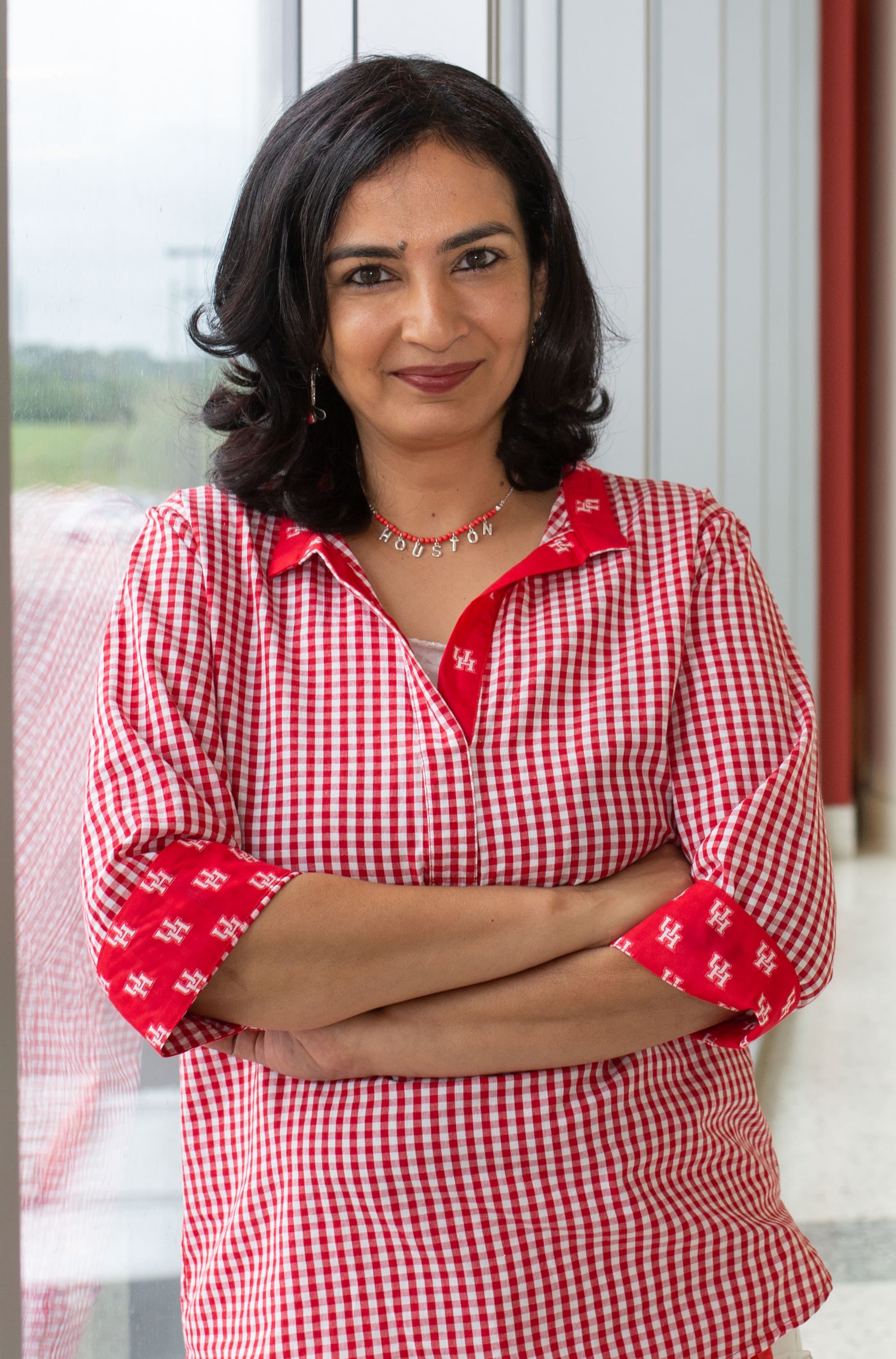Aditi Marwaha
Marwaha channels ancient Indian philosophy to pay it forward to students, pay it back to mentors.

When Aditi Marwaha, B.Pharm., Ph.D., first stepped foot on the University of Houston campus, she immediately felt right at home. She liked the inclusivity and diversity of the campus, as reflected by the students, faculty and staff.
“Being in such an inclusive environment is so inspiring, so good for learning and development,” Marwaha said. “I just fell in love with this place, and it’s my village now.”
And now, as an instructional associate professor in the Department of Pharmacological and Pharmaceutical Sciences at UH, Marwaha has an opportunity to spread her love for the University to her students.
“My mission is to make students curious,” Marwaha said. “Not just in the field I’m teaching in but just being curious in general because that makes lifelong learners.”
She adds, “And when you’re a lifelong learner, it’s not just good for your profession. It’s good for you as a human being, it’s good for your family, it’s good for the community. You’re open to different ideas, you’re open to different points of views, and you're open to different conflicting theories. And that just makes you a better human being and a better community member.”
Marwaha finds it rewarding to see students apply knowledge gained when exposed to different possibilities. To her, this helps them succeed.
As an example, Marwaha said that at the pharmacy school, students studied an endocrine module that illustrated important concepts of diabetes. After completing this intensive course, a student approached her.
“She told me, ‘You know, Dr. Marwaha, after the diabetes module, I lost nine pounds,’” Marwaha said. “I was so happy that she didn’t take the course just for the sake of taking it. She applied and understood that this is not just something for patients, not something just to be preaching. It’s something she applied to her lifestyle. This was so rewarding for me to hear.”
Marwaha feels there are two benefits to being a donor. Donating means paying it forward to the students coming in and making more possibilities open to them, and paying it back to the mentors who helped her achieve her goals.
Indian philosophy calls this “Guru Dakshina,” an ancient concept of repaying the teacher after the education is complete.
“One way to repay them [the gurus] is to contribute financially to the University. In this instance, you are doing two things. You’re paying it to the students, but you’re also paying it back to the faculty.”
Click below to watch the full interview with Aditi Marwaha, Ph.D.
